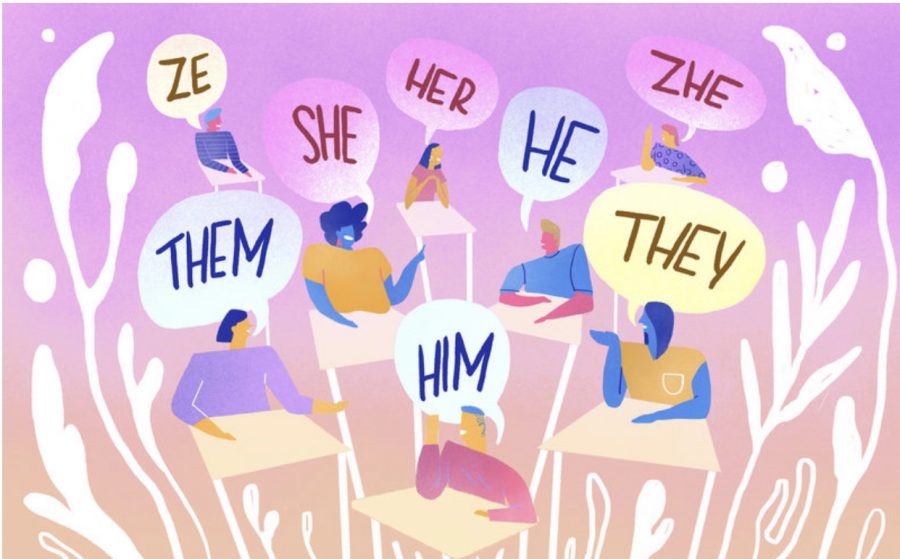Pronouns – Paramount or Pointless?
March 25, 2020
I attended an event in New York City a few weeks ago (before the COVID-19 strike, of course). They asked me to write on my name tag, my name along with my pronouns. I was immediately puzzled, as I had no idea what that meant. I knew that the word “pronoun” was used in grammar, but that was about it. As I met other people attending the event and glanced at their name tags, I saw that they wrote below their names she/her or he/his. I even saw a they/them. The importance of these pronouns, which I had never thought about even once in my life, was at once new and fascinating.
According to the Human Rights Campaign, “using a person’s chosen name and desired pronouns is a form of mutual respect and basic courtesy. Everyone deserves to have their self-ascribed name and pronouns respected…the experience of being misgendered can be hurtful, angering, and even distracting.”
Recently, on a social media platform called TikTok, a user was criticized and insulted for what they said in their video. “See this?” they said as they pointed at themselves. “This is a non-binary person. This non-binary person who looks particularly masculine today.” They were wearing a sweater and jeans. “Their pronouns are still they/them,” they then whispered at the camera. Encouraging comments were existent, but the vast amount of negative comments that overshadowed the positive ones was rather unnerving to me. The negativity ranged from “can you just be male or female or nah” to “see this…this is a WOMAN,” and, unfortunately, much more severe ones.
Another user posted a picture on Instagram saying, “If you can respect a dog’s pronouns, you can respect a person’s.” Unsurprisingly, this also received many criticisms, like “You just admitted being as equal to a dog” and “This makes absolutely no sense at all.”
Mandler, a nonbinary individual, confirmed in an interview with Seventeen that “misgendering a trans person is an act of violence. It’s an act of psychological violence. It’s a denial of somebody’s personhood and a complete refusal to acknowledge their identity, whether intentional or not.” She later added on that “when I get misgendered, by strangers, it’s one thing. But it’s especially painful when it’s people who are close to you. So when my parents misgender me, it’s a knife in my heart, because they’re the people whose opinions matter to me more than anyone else’s.”
Personally, I’m shocked by the negativity. As someone who has always considered herself a she/her and hasn’t truly given much thought about pronouns, if someone asked me to address them as a certain pronoun, I would simply say “okay” and be done with it. It’s not easy; even writing this article, there were numerous times where I caught myself after typing a she or her and changing it to a they or them. I might forget and mess up a few times, but I’d apologize and try again. It’s not like they’re asking you to give them a heart transplant or something. I always grew up believing that if something is important to somebody, you should respect that as much as you can. Respect is free, and there really is no harm in giving it out. In the end, it’s funny how I found so much information about people speaking up about their pronouns and almost none except for negativity in comment sections about people shutting them down.

















































































































































